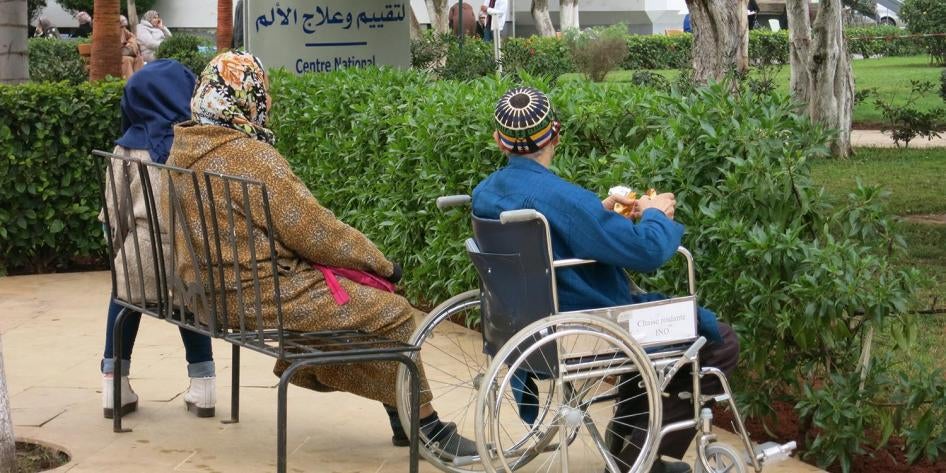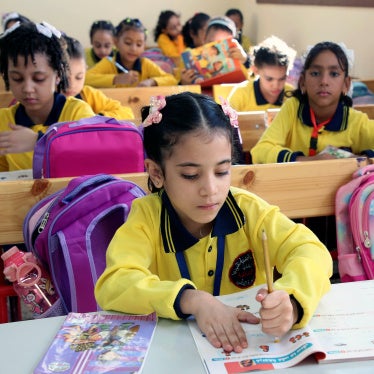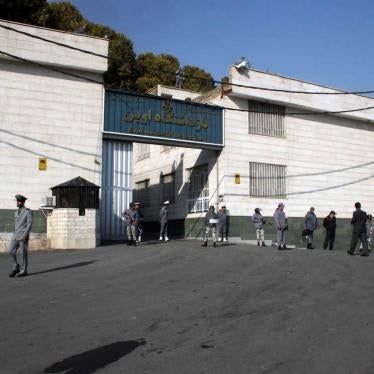(New York, February 4, 2016)—Tens of thousands of patients with terminal illnesses in Morocco needlessly suffer from debilitating pain and other symptoms, Human Rights Watch said in a report released today to coincide with World Cancer Day.
The 77-page report, “Pain Tears Me Apart: Challenges and Progress in Ensuring the Right to Palliative Care in Morocco,” estimates that each year, more than 62,000 Moroccans need palliative care, which focuses on improving the quality of life of people with life-limiting illnesses by treating pain and other symptoms. While the Moroccan government has taken a number of important steps to improve end-of-life care, Human Rights Watch found only two public hospitals, in Casablanca and Rabat, have specific units that offer this essential health service, and only to cancer patients. Patients suffering severe pain outside of these cities must either undergo difficult travel to these centers or do without effective pain medicine.
“There is an urgent need for the Moroccan government to expand palliative care services,” said Diederik Lohman, associate health director at Human Rights Watch. “Right now, thousands of people in Morocco with cancer and other serious health conditions are suffering needlessly from treatable symptoms.”
The report is the ninth in a series of Human Rights Watch studies of how countries are providing healthcare services for people with incurable illnesses. Other reports covered, Armenia, India, Kenya, Mexico, Senegal, and Ukraine, among others.
In Morocco, Human Rights Watch conducted in-depth interviews with 85 patients and healthcare workers in five regions of Morocco between September 2014 and January 2015, and carried out extensive analysis of Morocco’s laws, regulations and policies relevant to palliative care.
Human Rights Watch found that the situation is particularly grim for the 40,000 Moroccans each year who need palliative care for illnesses other than cancer such as advanced heart, lung or renal disease. Morocco has no palliative care services at all for such patients.
As a result of the dearth of palliative care services, many patients face severe pain without appropriate treatment. Human Rights Watch found that only about 1 in 50 doctors can prescribe morphine, the mainstay treatment for severe pain at the end of life, for ambulatory patients, and estimates that four out of five people in Morocco who need it do not receive it. Home-based palliative care is non-existent outside Casablanca and Rabat.
“Because of the pain I couldn’t sleep, I couldn’t talk to my friends,” said a 29-year-old man with a tumor in his leg and abdomen who did not have access to palliative care. “I wanted to crush my head against the wall.”
Human Rights Watch identified significant positive steps the Moroccan government has taken in recent years to develop palliative care services. In 2010 and 2012, it adopted national health policies with strong provisions on palliative care; in 2013 it removed a problematic restriction on morphine access from its drug law; and in 2015 Morocco became one of the first countries in the Middle East and North Africa to include a module on pain and palliative care in its undergraduate medial curriculum.
However, implementation has been slow. While the government simplified regulations for prescribing morphine in 2013, various legal and educational barriers impede its use. Palliative care units in Fez and Marrakesh, which the government had scheduled to open between 2011 and 2013 are not yet operating. Few pharmacies or hospitals stock strong pain medications and few physicians prescribe them; and continuing medical education programs for current healthcare providers remain limited.
The World Health Organization considers palliative care an integral part of health care and recommends its integration into countries’ health systems.
Article 12 of the International Covenant on Economic Social and Cultural Rights, which Morocco ratified in 1979, says that governments have an obligation to ensure the availability of palliative care, access to essential palliative care medicines, including morphine, and adequate training of healthcare workers. Failure to do so may result in a violation of the right to health and in certain cases, could constitute a breach of the prohibition on cruel, inhuman, and degrading treatment.
“Morocco has an opportunity to become a leader in palliative care in the Francophone African region,” said Dr. Mati Nejmi, a palliative care pioneer in the country. “But it will need to significantly increase its efforts to ensure these services are available.”










